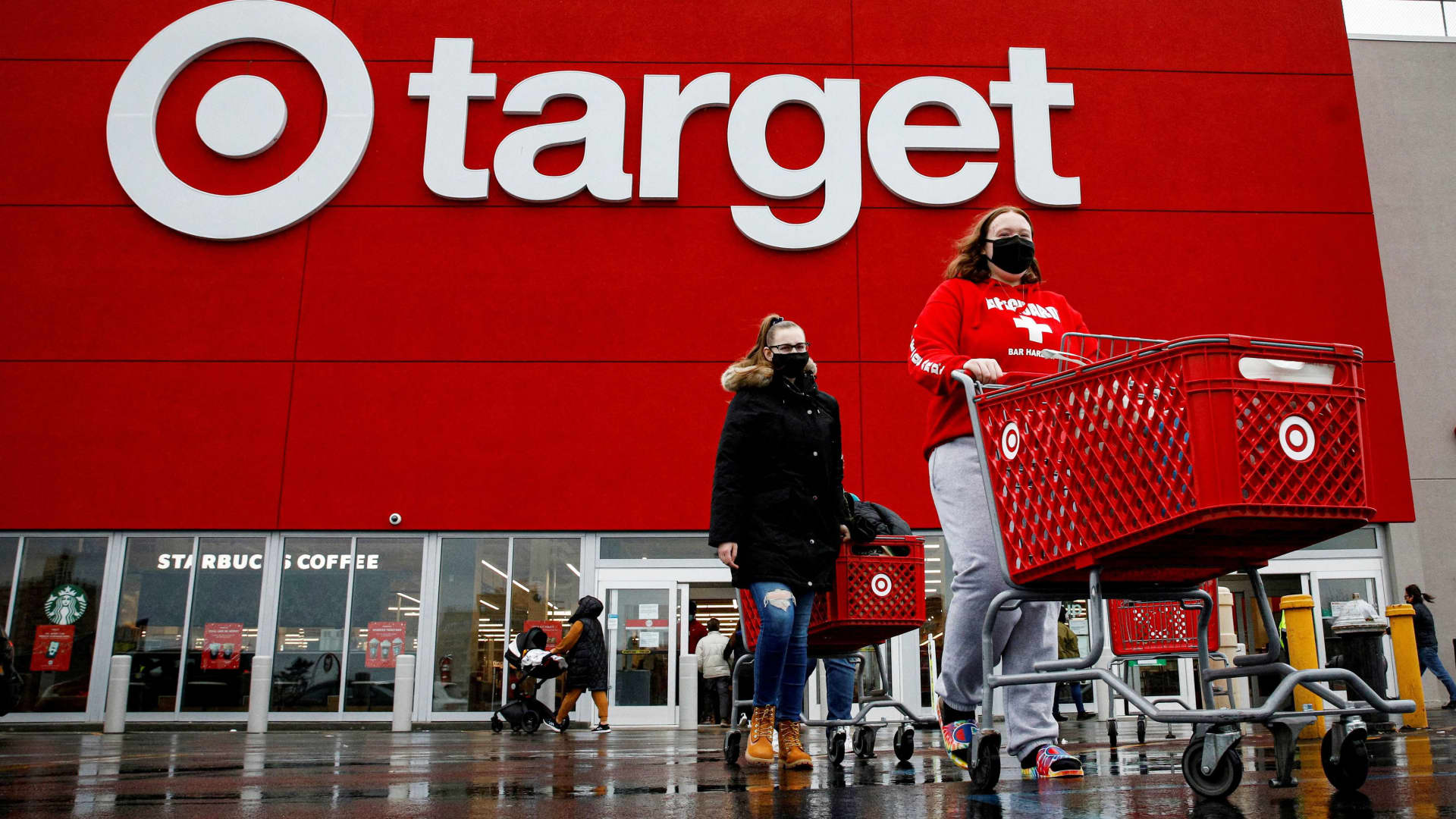Target has experienced a significant decline in market value, losing $9 billion, following a boycott initiated by angry social media users. The boycott was triggered by the retailer’s introduction of the “PRIDE” collection, featuring LGBTQ-friendly clothing for children.
Just a week before the controversy unfolded, Target’s stock closed at $160.96 per share, resulting in a market capitalization of $74.3 billion.
However, early trading on Thursday revealed a 1% drop in the company’s shares, reaching $141.76. Consequently, Target’s market value plummeted to $65.3 billion, signifying a 12% decrease and a $9 billion loss.
In response to the intense backlash from certain customers who confronted workers and toppled displays, Target announced on Tuesday that it would be removing certain items from its stores and implementing other modifications to its LGBTQ+ merchandise nationwide, prior to Pride month.
The retailer expressed concern over threats that had impacted the safety and well-being of its team members, ultimately prompting the adjustments to its plans.
Some stores experienced incidents where customers knocked down Pride displays, approached workers in an aggressive manner, and shared threatening videos on social media.

This followed Target CEO Brian Cornell’s defense of the LGBTQ-friendly merchandise, stating that it aligned with the company’s commitment to societal progress.
Target did not provide specific details on the items being removed, but one of the notable products that attracted attention was “tuck-friendly” women’s swimsuits, designed to enable transgender women who have not undergone gender-affirming surgeries to conceal their private parts.
Additionally, designs by Abprallen, a London-based company specializing in occult- and satanic-themed LGBTQ+ clothing and accessories, faced backlash.
The Pride merchandise had been available for purchase since early May, with Pride month taking place in June. As a result of confrontations and negative reactions from shoppers in certain areas, Target confirmed that it relocated its Pride merchandise from the front of stores to the back in some Southern locations.
Conservative commentator Tomi Lahren predicted that Target would encounter a decline in business similar to the one experienced by Bud Light. Lahren stated that conservatives would either boycott Target or decrease their patronage, likening it to the effect of the Bud Light boycott.
Bud Light faced consecutive sales declines over a six-week period, amounting to a 25% decrease compared to the previous year, following boycott calls in response to a controversial marketing campaign featuring transgender social media influencer Dylan Mulvaney.
Target’s Market Value Plummets by $9 Billion
The boycott and subsequent decline in market value for Target are likely to have several impacts on the company. Firstly, there will be a significant financial loss as the $9 billion drop in market value directly affects the company’s profitability and shareholder confidence.
This loss can hinder Target’s ability to invest in future growth initiatives and may also impact its stock price and attractiveness to investors.
Furthermore, the boycott can lead to a decline in sales and revenue for Target. Customers who support the boycott may choose to shop at alternative retailers, resulting in a loss of market share.
Additionally, the controversy surrounding the LGBTQ+ merchandise could deter some potential customers, impacting overall sales figures.

The brand reputation of Target may also be affected by the controversy. While the LGBTQ+-friendly merchandise may resonate positively with certain customer segments, the backlash from the boycott could tarnish the company’s image in the eyes of some consumers.
The approach with which Target handles the situation, including its response and actions taken, will be critical in shaping public perception of the brand. Target’s market value has suffered a significant blow, losing $9 billion, subsequent to a boycott initiated by enraged social media users protesting the introduction of the “PRIDE” collection.
The retailer responded by making adjustments to its LGBTQ+ merchandise and removing certain items from stores.
The controversy included confrontations, toppling of displays, and threatening videos. Target’s decision to relocate its Pride merchandise in some stores and comparisons to the Bud Light boycott further exemplify the impact of the controversy on the retailer’s business.











